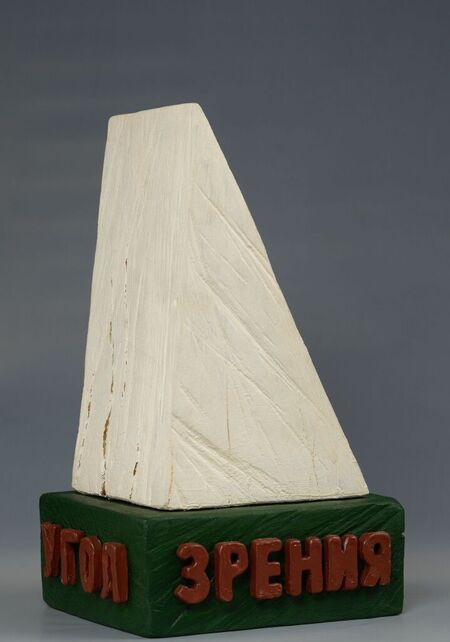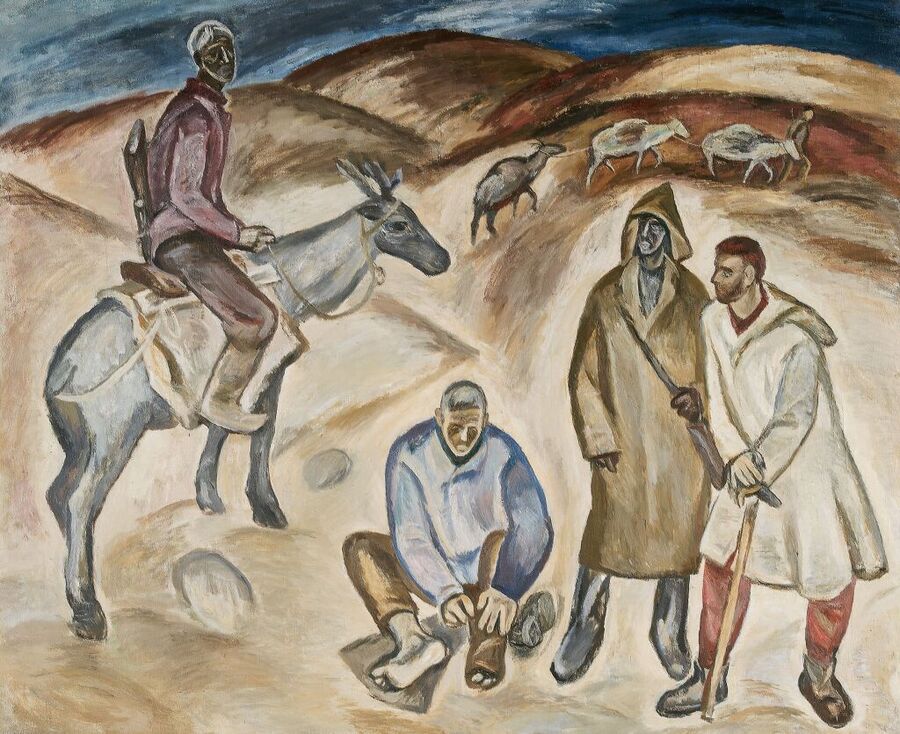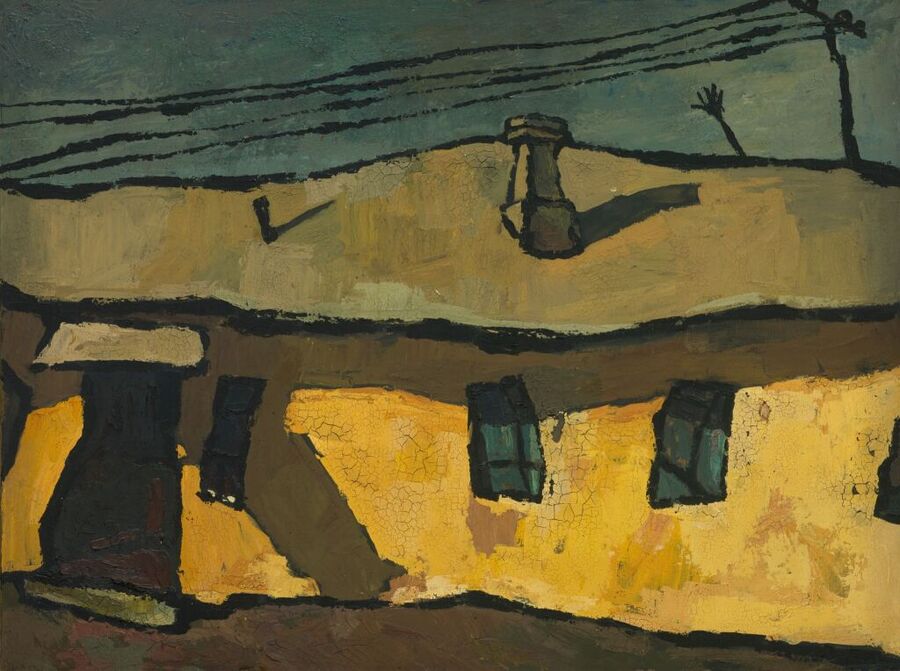
Russian art for the second half of the twentieth century — the beginning of the twenty-first century
== sync, corrected by elderman == @elder_man
A lecture by Darya Dumb for the educational online project of the Third-Kow Gallery of Laurus describes the specifics of the development of domestic art in times of thawing, stagnation, restructuring and modern times.
The path of painting, figureless and abstract is being followed. The features of the emergence of the latest forms of art — such as instruction, kinetic object, performance, video art, conceptual art, etc. — are discussed: Vladimir Gavrilov, «surov», Yuri Zlotnikov, Elia Belutin, Oscar Rabin, Lydia Masterkova, Mikhail Roginsky, Ilya and Emilia Kabakov, Eric Bulatov, Leonid Sokov, Collective Action, Vyacheslav Kolechuk and many others.

Pavel Nickonov. Geologists, 1962 from the collection of the State Thirdow Gallery, source: «
The first part of the lecture is devoted to the problem of painting in modern art and «testing it for strength» by the masters of the past 70 years.

In addition to painting, it looks at the structure and even the total installation that the viewer is seeing from the outside, but literally from the inside of the work.
Ilya Kabakov. Crate of garbage, 1981 from the collection of the State Third-Kow Gallery, source: «
An essential role for a lecturer is to talk about the specifics of phenomena such as Moscow’s romantic conceptualism and social art, where bizarrely the text is entwined into the image and the ideological symbols are placed on the volume-spatial artwork of artists.
Boris Orlov. Pantocrator. Stand still, 1990 from the collection of the State Thirdow Gallery, source: «My Thirdowka»»
A separate section is devoted to performances and artistic acts, where the distinction between the public and the actors is already completely erased, the work itself is ephemeral, and once completed, the work is made available to the public only in the form of documentation (if the author or authors have taken care of it at all).
Boris Turkish. Sliced shoe, 1974 from the collection of the State Third-Kow Gallery, source: «My Tratowka»»
Assemblys and kinetic works are also affected, where not only is the static object, but the movement, which is often the main expression, plays an important role. From kineticism, the author turns to a number of modern technological works. The lecture concludes with a talk about the video art as an «surviving painting», where, once again — only with completely different technical means — artists reflect on the sacrilege and the profanity, the high and the low, as has been the case all along since humanity’s invention of visual art.